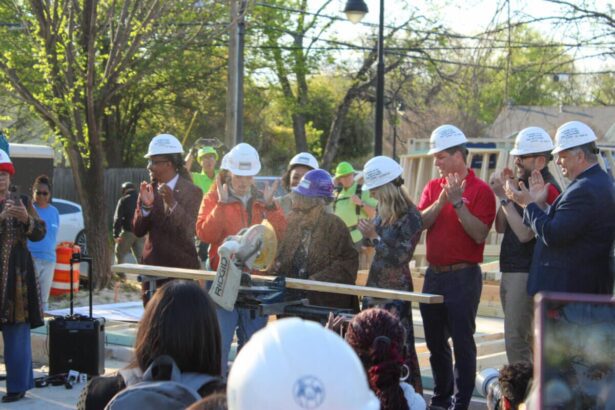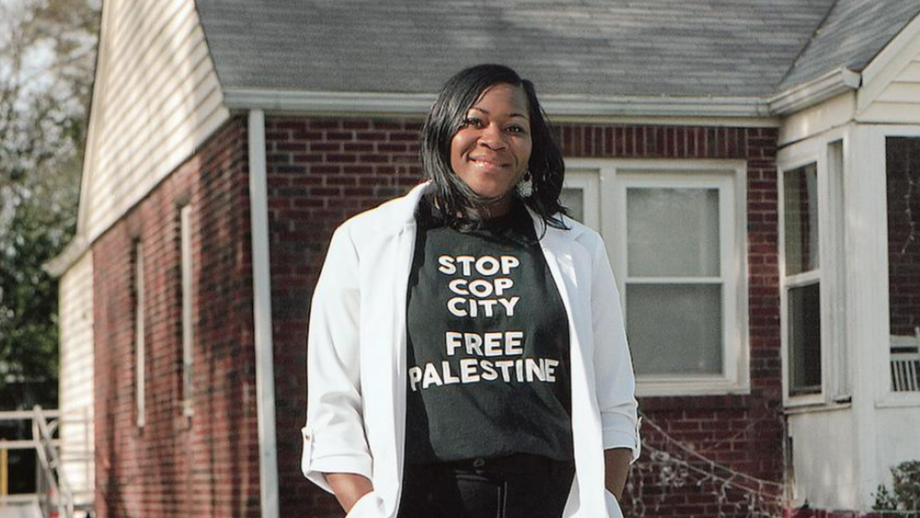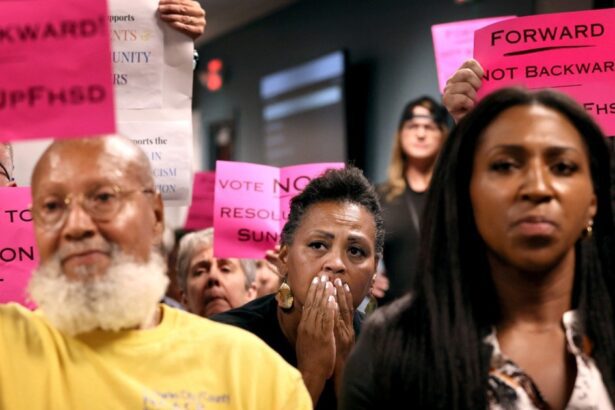Rev. Keyanna Jones, an East Atlanta native, ordained minister, interfaith leader, wife, and mother, is a dedicated social justice activist and community organizer. She is leading the charge against Atlanta’s plan to build a public-safety training facility known as “Cop City.”
Through her activism in Atlanta and beyond, including speaking at the United Nations Human Rights Committee in Geneva, Switzerland, Rev. Jones has emerged as a vital voice in the fight for liberation, underscoring the interconnectedness of collective freedom.
Currently serving as the active pastor at Park Avenue Baptist Church, Rev. Jones has dedicated her life to service, advocating for justice in various sectors. Her experiences in activism in New Jersey led her to address issues of systemic racism in education, police brutality, and the troubling presence of ICE in her community.
Returning to Atlanta, she has brought her activism home, deeply connected to the city and its people. Her dedication to fighting injustice stems from her grandmother’s teachings, instilling in her a commitment to stand up for the voiceless and speak out against wrongdoing.
Rev. Jones’ opposition to projects like “Cop City” is rooted in her belief that such initiatives are oppressive and contribute to environmental racism, displacing vital natural resources and infringing on the rights of marginalized communities.
Her engagement in the “Stop Cop City” movement challenges misconceptions about community support for the facility, highlighting a diverse coalition united in addressing intersecting human rights and environmental issues. She emphasizes the immediate and lasting impacts on the local community, particularly on children, underscoring the urgency of advocating for justice.
**U.S. Imperialism and Its Impact on Communities**
The U.S. imperialism that financially supports the Israeli military for attacking Palestinians is the same force enabling police to create fear in Black neighborhoods within the U.S.
For one woman, the constant gunfire from a nearby shooting range disrupted her son’s homeschooling, compelling them to move for a more conducive learning environment. She emphasizes the psychological toll on children caused by such disturbances.
Despite her focus on her local community, her activism extends beyond borders, recognizing the similarities in militarized policing from Atlanta to Gaza and the need for unity among oppressed groups worldwide.
She highlights the partnership between the Georgia International Law Enforcement Exchange (GILEE) and the Israeli military in training U.S. officers, emphasizing that this alliance impacts various police departments nationally.
Underscoring the interconnectedness of global injustices, she points out that the imperialism funding Israeli aggression also contributes to police brutality in Black communities.
Reflecting on her work, she acknowledges the vital support of her husband, crediting him as her refuge and pillar of strength in her advocacy.
To engage in liberation efforts, she suggests individuals identify their passions and align with active communities organizing around those issues as spaces for learning and action.
*Source: essence.com*




